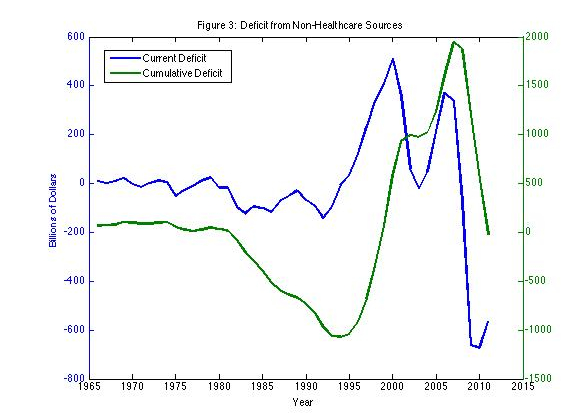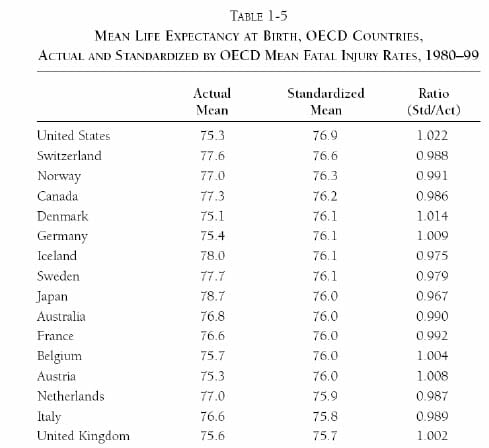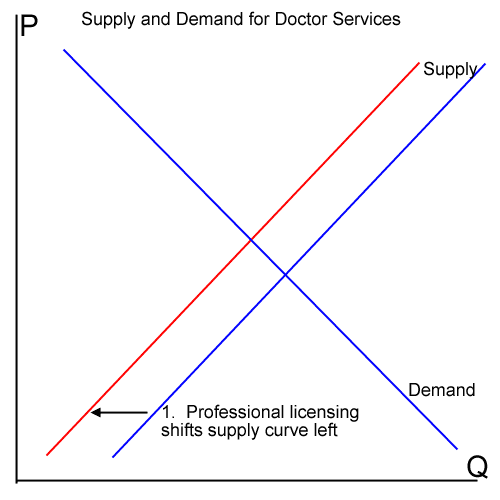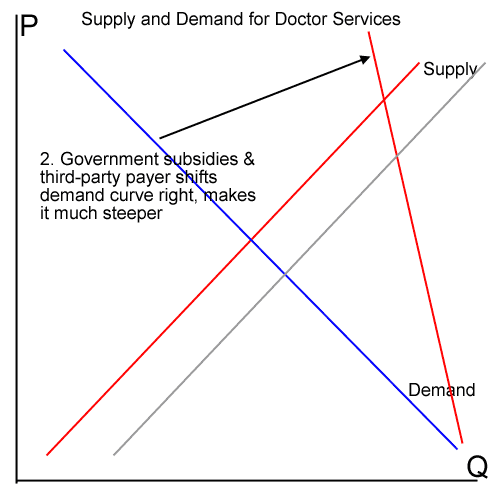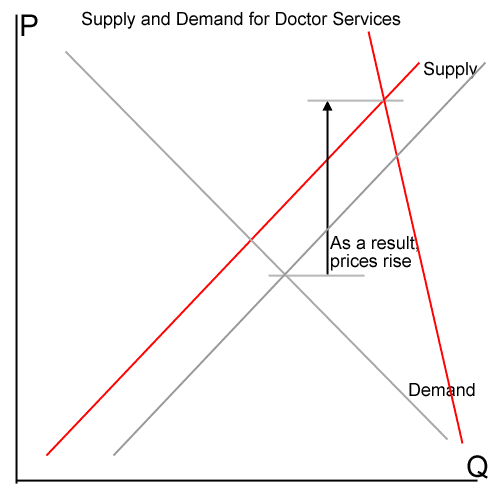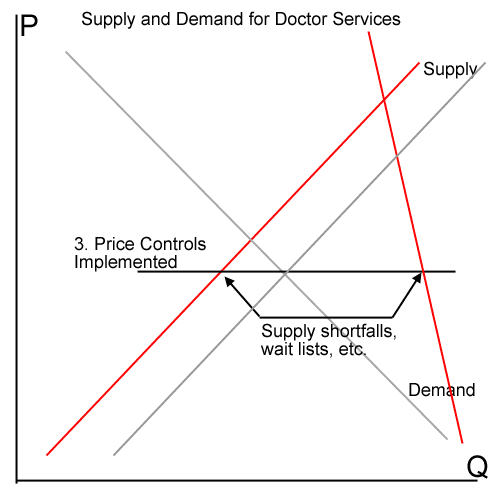CNS News reported, and no one in the Obama Administration seems to be denying, that the IRS is assuming the cheapest conforming health insurance policy for a family of four under Obamacare will cost $20,000 per year
The IRS's assumption that the cheapest plan for a family will cost $20,000 per year is found in examples the IRS gives to help people understand how to calculate the penalty they will need to pay the government if they do not buy a mandated health plan.
The examples point to families of four and families of five, both of which the IRS expects in its assumptions to pay a minimum of $20,000 per year for a bronze plan.
“The annual national average bronze plan premium for a family of 5 (2 adults, 3 children) is $20,000,” the regulation says.
Bronze will be the lowest tier health-insurance plan available under Obamacare--after Silver, Gold, and Platinum.
Kevin Drum shot back, saying that Conservatives were essentially out of touch for thinking that health insurance currently, or could ever conceivably, cost much less
So is this unusual? Not really. The average cost of healthcare coverage for a family is currently about $16,000,and by 2015 (the base year for the IRS examples) that will probably be around $18,000 or so. And that's for employer-sponsored plans. Individual plans are generally steeper, so $20,000 isn't a bad guess. It might be a little high, but not by much. And the family in question will, of course, be eligible for generous subsidies that bring this cost down substantially, thanks to the Affordable Care Act. They won't actually pay $20,000 per year.
(We'll ignore that last part as typical Progressive double think -- as long as the government is paying, the costs don't count. It's like being free!)
I can't believe that Drum has actually shopped for health insurance of late. The link he relies on for his data is for employer plans only, and Drum makes the unproven assumption that these are somehow less costly than individual plans people have to actually shop for. This is false. Employer plan averages include a lot of gold-plated policies in the mix driven by noncompetitive union contracts and executives wanting gold-plated plans for themselves at the expense of shareholders. I would argue that Drum is comparing "platinum" plans today to "bronze" plans under Obamacare, and it should be disturbing that even with this bit of judo, bronze Obamacare plans come out 20%+ more expensive than gold-plated current corporate plans.
But there is an even easier way to solve this, one Drum (who is nominally a "journalist") could solve with a few phone calls or clicks on Internet sites: we can get some quotes. Being a blogger with a real job, I do not have time to do this, but fortunately I don't have to because I just did this a few months ago for my family. Here are a few quotes for a family of four with two 50+ old adults in pretty good health and two teenage kids from Blue Cross - Blue Shield of Arizona:
BlueOptimum- Plus $5000 deductible - $615.45 per mo., 7,385.40 per year>
BluePortfolio-Plus $3000 deductible - $703.80 per mo., 8,445.60 per year (HSA eligeable)
BluePorfolio-Plus $5500 deductible - $499.75 per mo., 5,997.00 per year (HSA eligeable)
Note first that these high deductible and HSA policies are ILLEGAL under Obamacare, in large part because they are actual insurance and Progressives don't mean "insurance" when they say "health insurance", they mean fully pre-paid all-encompassing medical care. I consider the purpose of insurance to be to protect from catastrophes that you can't afford (e.g. your house burns down). In the case of medical care, I thought about from my financial position, and determined what the largest financial setback I could bear in a year if someone really had a medical problem. So I set my deductible at that number, and made sure I bought a policy that paid everything else above that reliably, without any low lifetime or maximum payment numbers.
The Blue Optimum above is a fairly standard co-pay plan that covers most doctor visits and drugs with only a copay. The Blue Portfolio are HSA plans that are pure insurance. I pay everything (except certain preventative care costs) up to the deductible, and they pay everything else above that. In this case, note that the deductible is per person but there is a total family/policy deductible of twice that. In other words, with the second policy, even if everyone in my family gets cancer in the same year, we aren't out of pocket more than $6,000. So, for this middle policy, in typical years we spend $8,445.60 plus, say, another $1000 on miscellaneous stuff for a total health cost of $9,445.60. Or half the Obamacare "bronze" or cheapest possible plan. In the worst possible year, if two family members get very sick in the same year (not a hugely likely event) we are out $14,445.60 per year. This is the worst case. Still 28% lower than the cheapest Obamacare option.
In this plan, I am allowed under the HSA provision to bank about $5,000 a year in a pre-tax account. I can use this money to pay medical bills up to the deductible, or save it. If money is left over some day, it becomes a retirement account and I can use the money for retirement. So I have the financial incentive to shop around for best prices, because the residual in the HSA is mine to spend on .... whatever. I have told the stories a number of times here about my medical shopping experience. X-rays that were charged to insurance companies for $250 suddenly cost $45 when I said I was paying cash. My wife got a 70% cost reduction the other day on orthodic shoes when she offered to pay cash rather than put her insurance in play. So, not only will Obamacare raise the prices of my insurance substantially, it will also raise medical costs in general by stripping away the last incentives for anyone to price-shop for health care.
When I read my Bastiat, I am always reminded how humans tend to insist on adopting the same myths and fallacies about the economy. The myths he busts in the 19th century can be seen on the pages of our newspapers every day of the 21st century. But one unique idea we have spawned since Bastiat is this bizarre notion that somehow it is wrong to pay for ones own medical expenses out of pocket. It took forever to convince even my very smart HBS-educated wife that it was a much better deal to go to a high-deductible health plan. Since we did so, we have saved a ton of money, and by the way done our small bit to keep prices down for the rest of you by actually shopping for things like x-rays (you can thank me later). I don't know why this fallacy is so entrenched and hard to change, but we have built the entire edifice of Obamacare on top of it.

